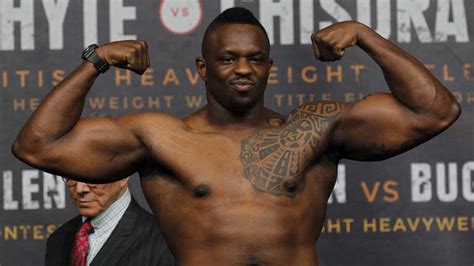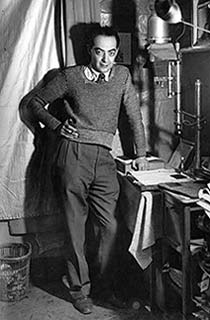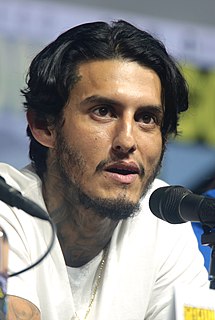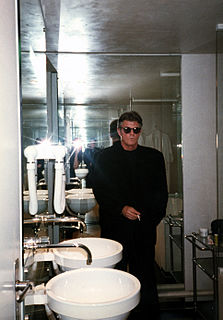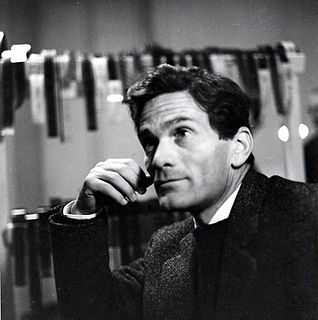A Quote by Agnes Varda
I tried to find a language for the film - not just telling stories. I picked the Picasso painting because it said more than I could explain. I need images, I need representation which deals in other means than reality. We have to use reality but get out of it. That's what I try to do all the time.
Related Quotes
My images were surreal simply in the sense that my vision brought out the fantastic dimension of reality. My only aim was to express reality, for there is nothing more surreal than reality itself. If reality fails to fill us with wonder, it is because we have fallen into the habit of seeing it as ordinary.
There's so many ways to be a voice and that's what I'm figuring out. Being an artist, being an actor, it's about telling stories that could heal, that could open up discussion that could make the community better. There are many (Latino) stories that need to be told and haven't been told right. If I could help be that voice then that's what I'm going to do, because this is a reality for me.
Digital technology, you see, is not the villain here. It simply offers another dimension. I'm not sure if it's a farther remove from reality than analogue. I think if we can speak of reality, if reality and representation can be spoken of in the same sentence, if reality even exists any more, digital is simply another way of encoding that reality.
The faux now of Twitter updates and things pinging at you - all the pulses from digitality that we try to keep up with because we sense that there's something going on that we need to tap into - are artifacts, or symptoms of living in this atemporal reality. And it's not any worse than living in the 'time is money' reality that we're leaving.
It has been said that I have three heroes: Christ, Marx and Freud. This is reducing everything to formulae. In truth, my only hero is Reality. If I have chosen to be a filmmaker as well as a writer it is because, rather than expressing reality through those symbols that are words, I have preferred the cinema as a means of expression - to express reality through reality.
From the internal reality, by which I means the totality of psychological experiences, it [science] actually separates us. Art, for example, deals with many more aspects of this internal reality than does science, which confines itself deliberately and by convention to the study of one very limited class of experiences the experiences of sense.
When I did the first edit of Les plages, it was very dry and very square in a way. I was just saying the minimum. I said, Well, if this is the minimum, I don't make it. So I tried to make it more refined. I tried to find images, allegorical images, that I could use to express things that I didn't want to say or didn't want to show or I was not able to find how to show.
As much as I try to be present, it just doesn't really feel like reality. It feels like a fleeting thing. There's a million other incredibly wonderful girls that are much more talented than me that are out there all the time. So I'm just trying to appreciate it for what it is. But I don't want it to take on that feeling of pressure, because I don't know where that's gonna get me.
Do the structures of language and the structures of reality (by which I mean what actually happens) move along parallel lines? Does reality essentially remain outside language, separate, obdurate, alien, not susceptible to description? Is an accurate and vital correspondence between what is and our perception of it impossible? Or is it that we are obliged to use language only in order to obscure and distort reality -- to distort what happens -- because we fear it?
If you have it you don't need it. If you need it, you don't have it. If you have it, you need more of it. If you have more of it, you don't need less of it. You need it to get it. And you certainly need it to get more of it. But if you don't already have any of it to begin with, you can't get any of it to get started, which means you really have no idea how to get it in the first place, do you? You can share it, sure. You can even stockpile it if you like. But you can't fake it. Wanting it. Needing it. Wishing for it. The point is if you've never had any of it ever people just seem to know.
I had lines inside me, a string of guiding lights. I had language. Fiction and poetry are doses, medicines. What they heal is the rupture reality makes on the imagination. I had been damaged, and a very important part of me had been destroyed - that was my reality, the facts of my life. But on the other side of the facts was who I could be, how I could feel. And as long as I had words for that, images for that, stories for that, then I wasn't lost.

